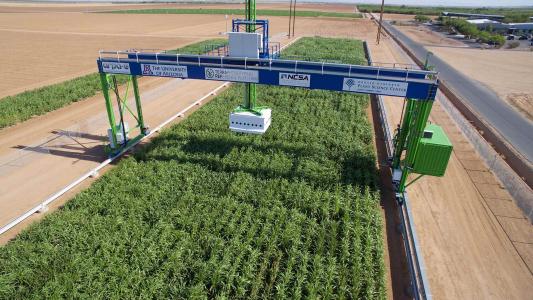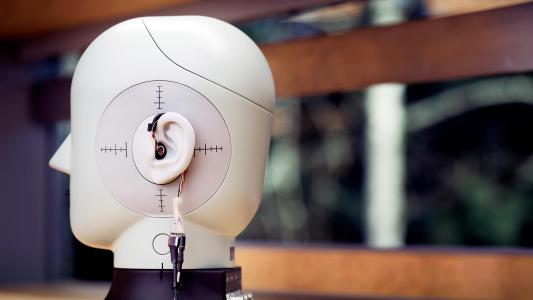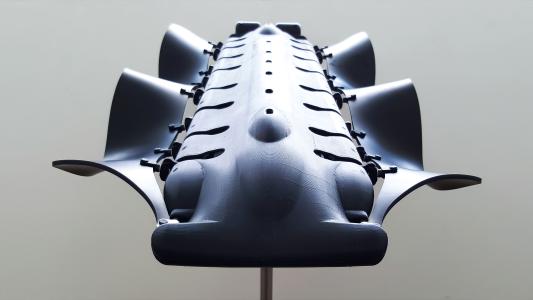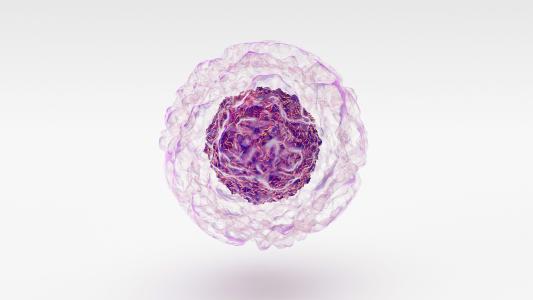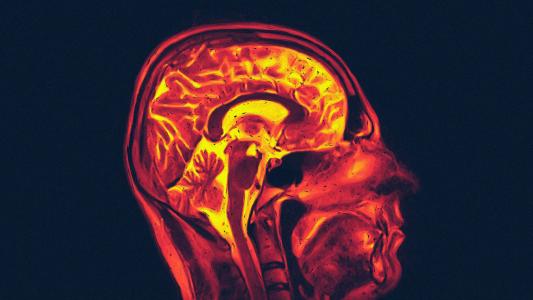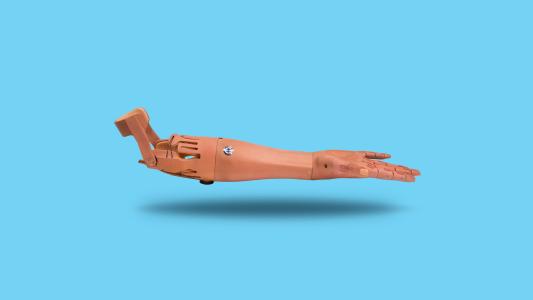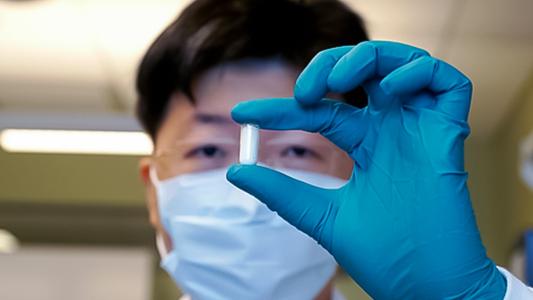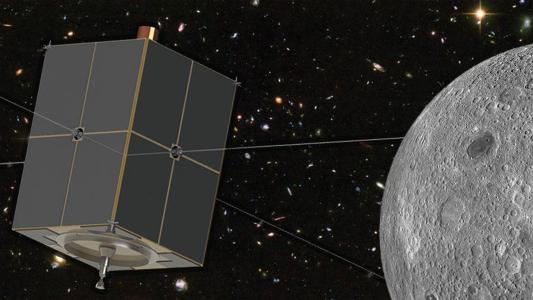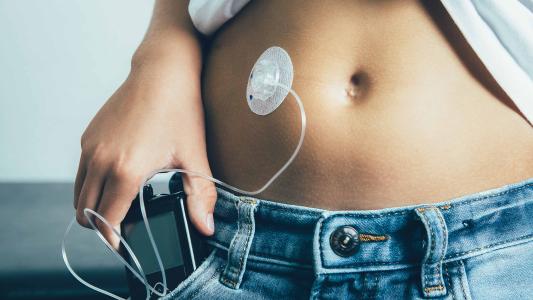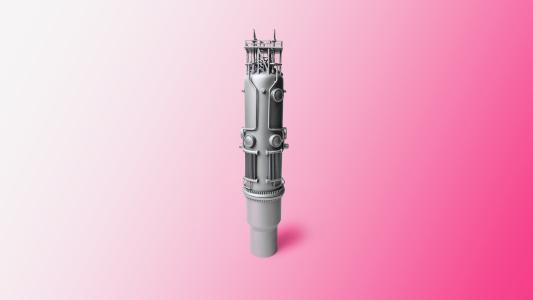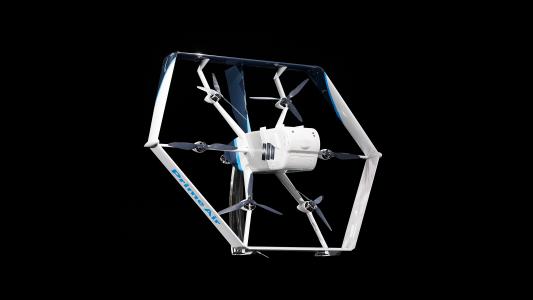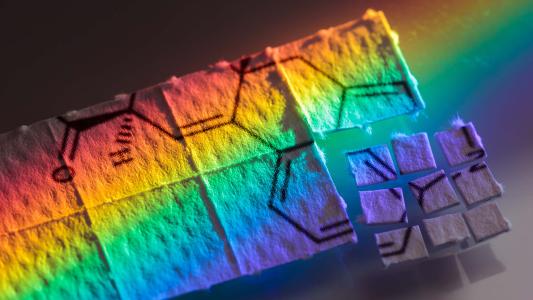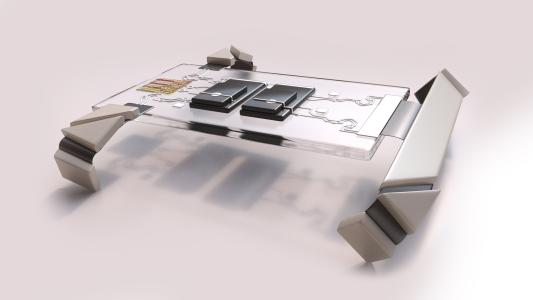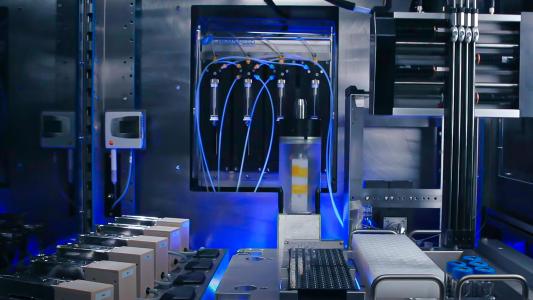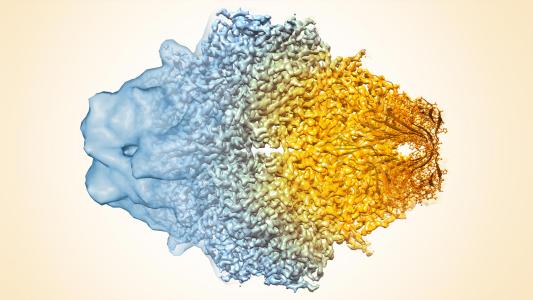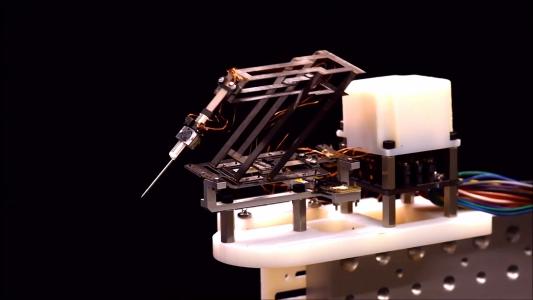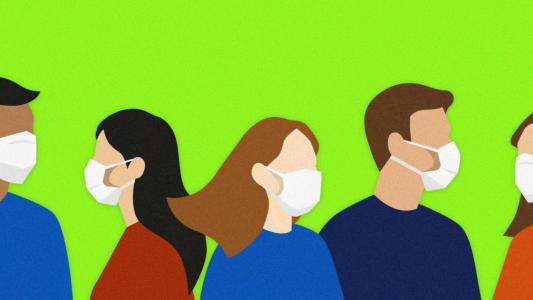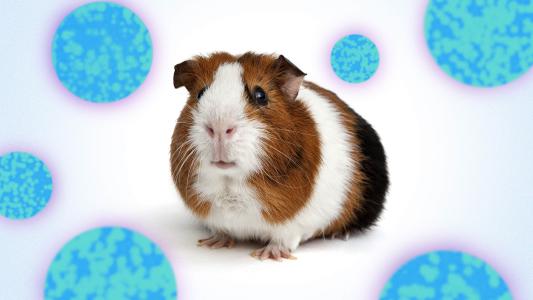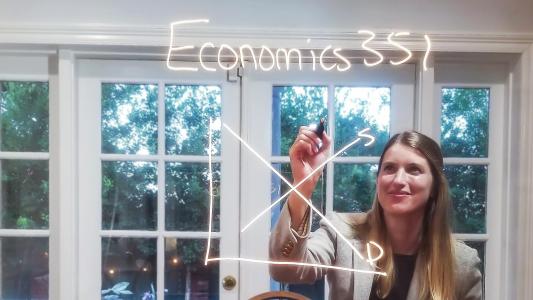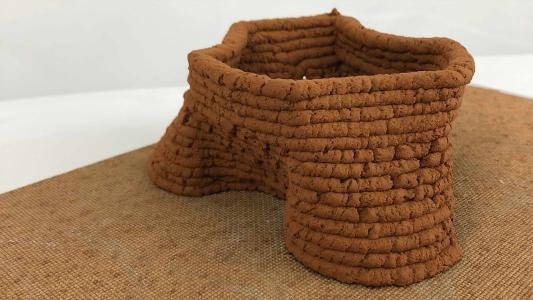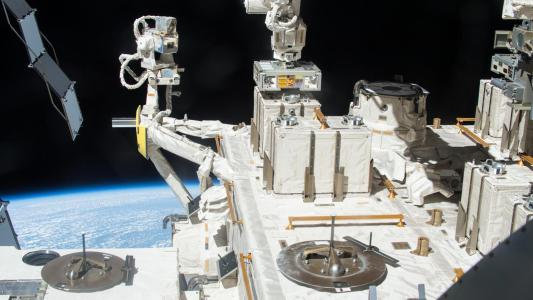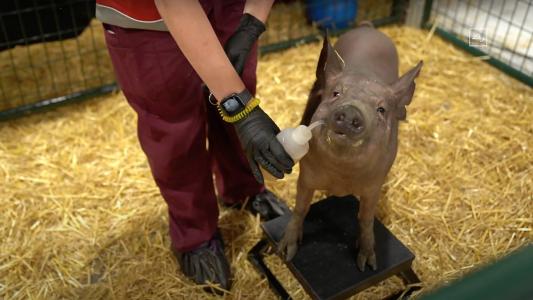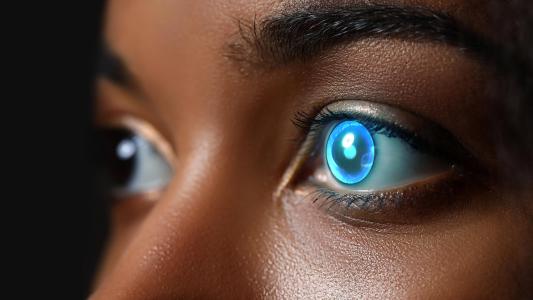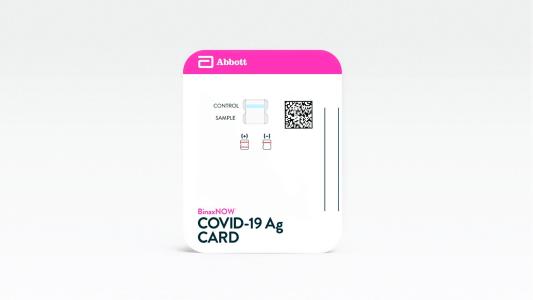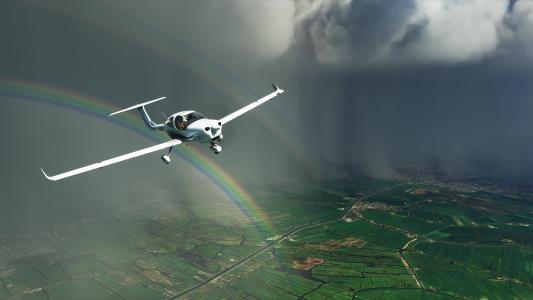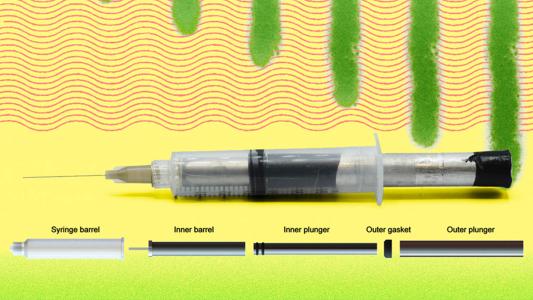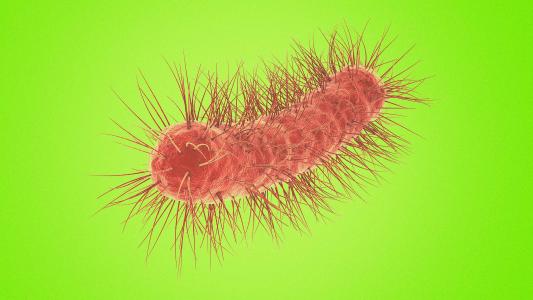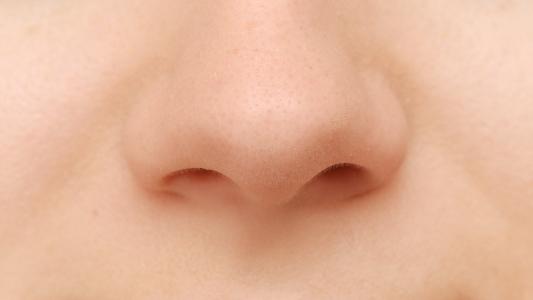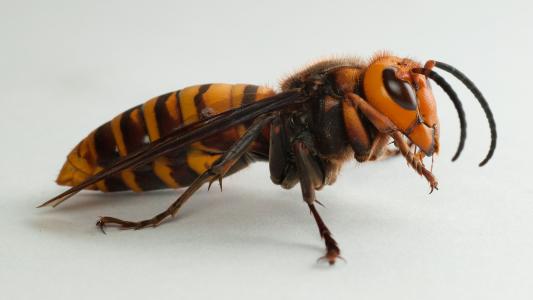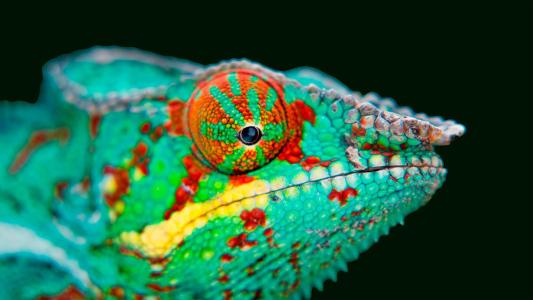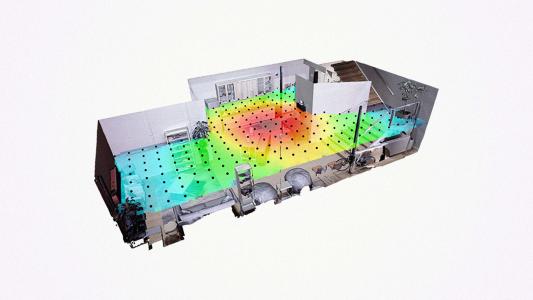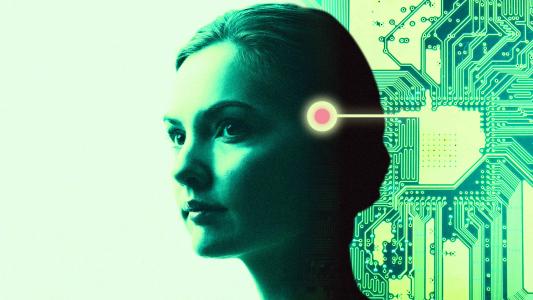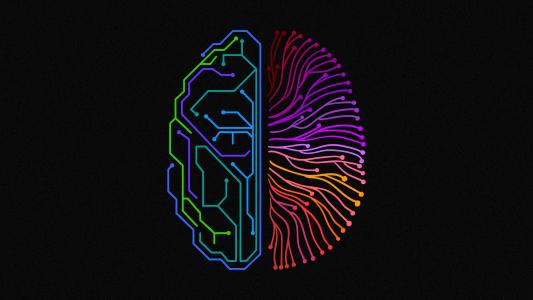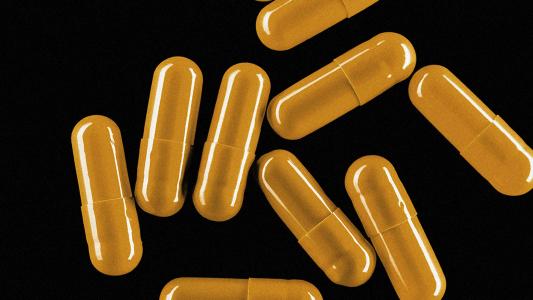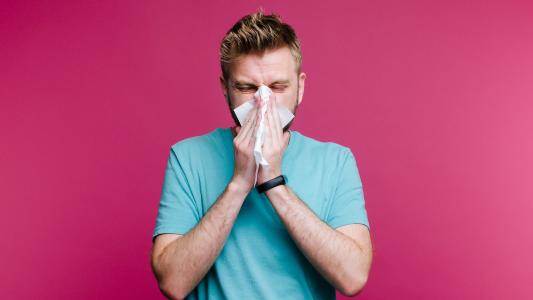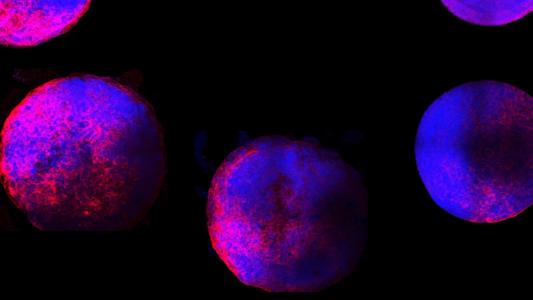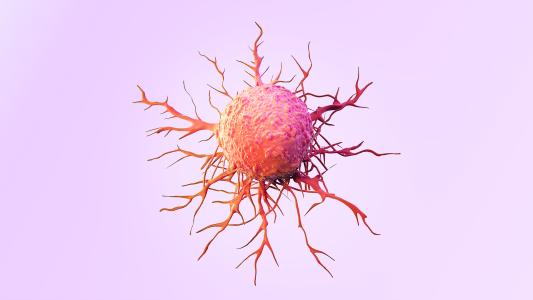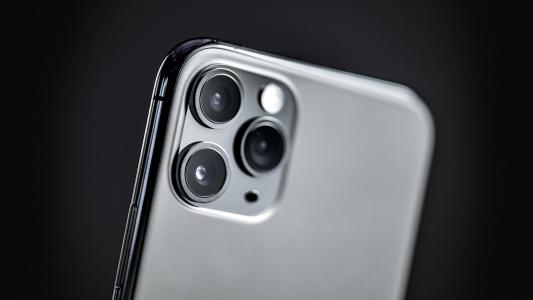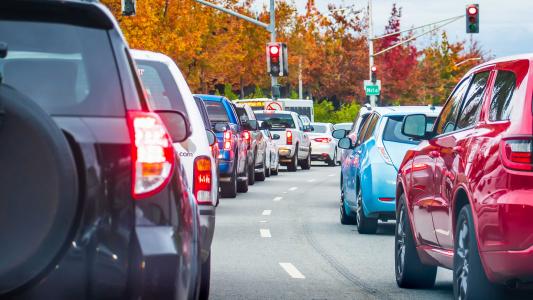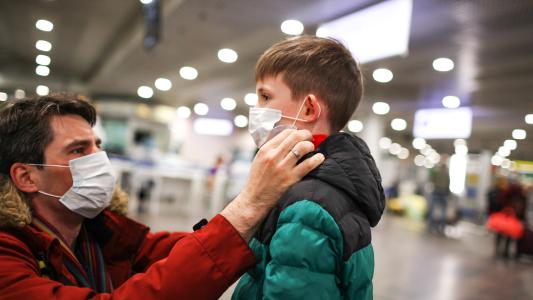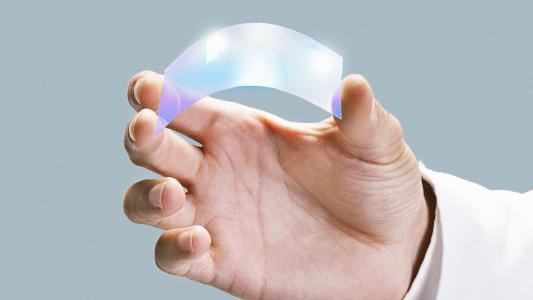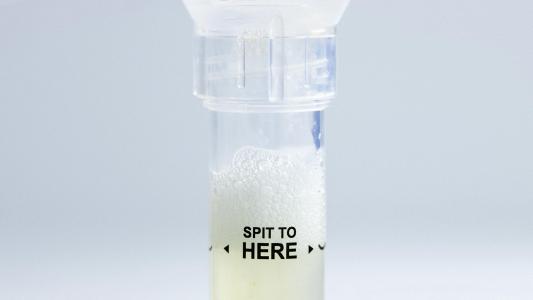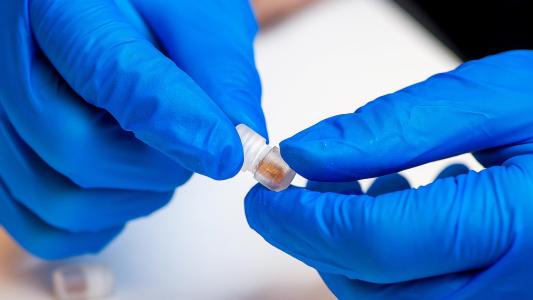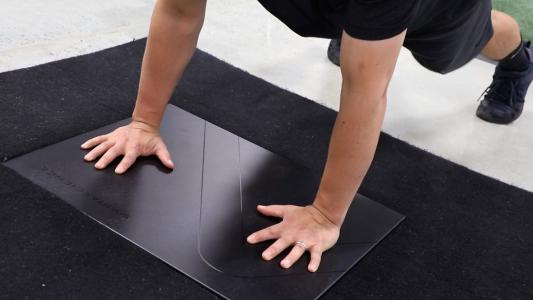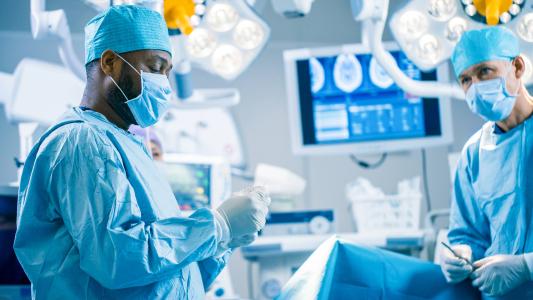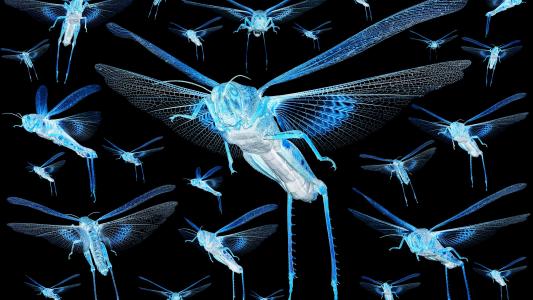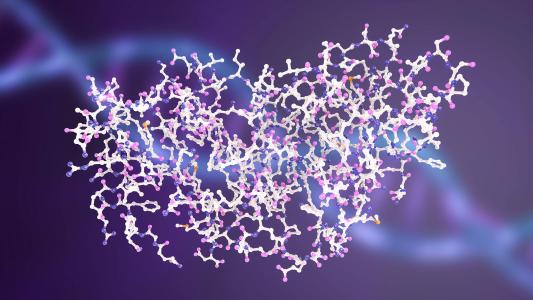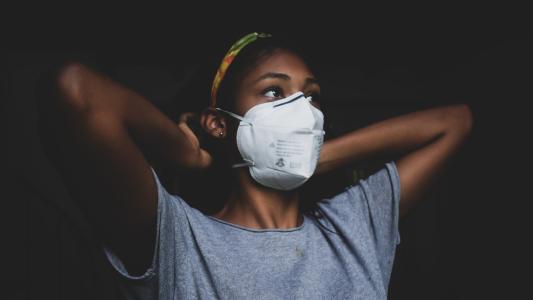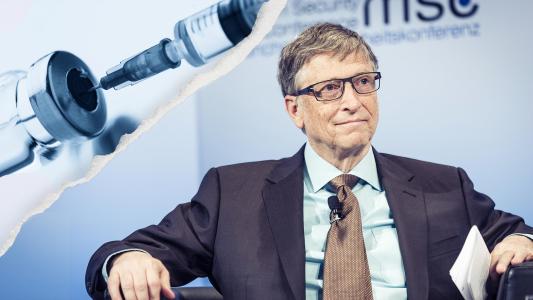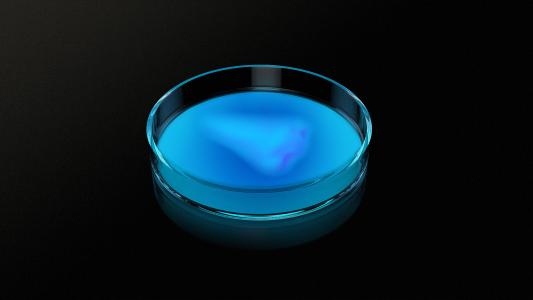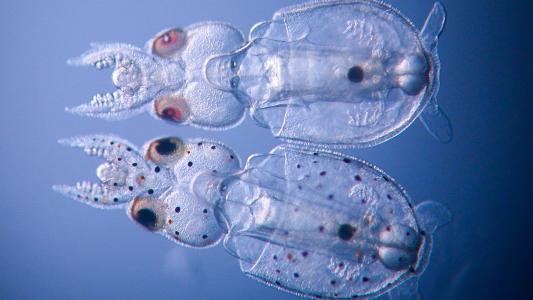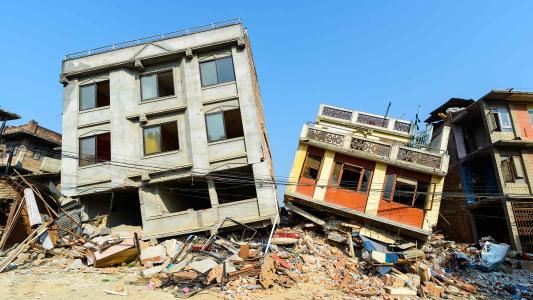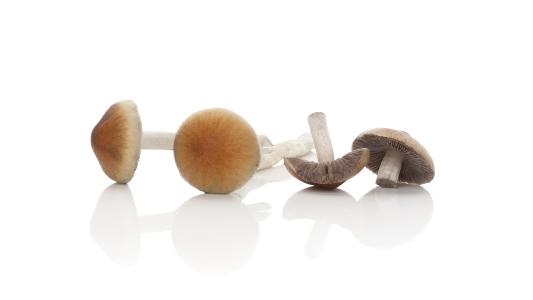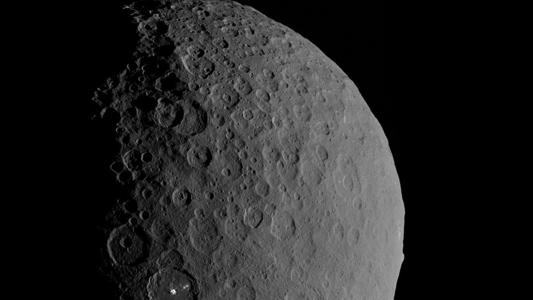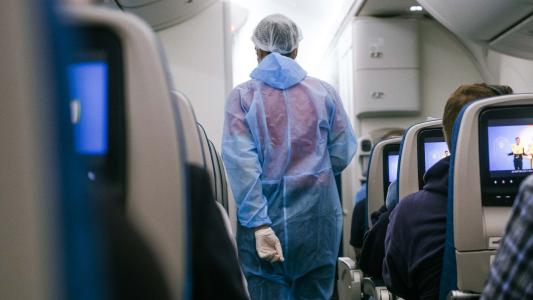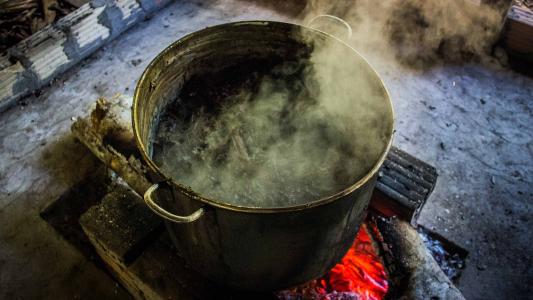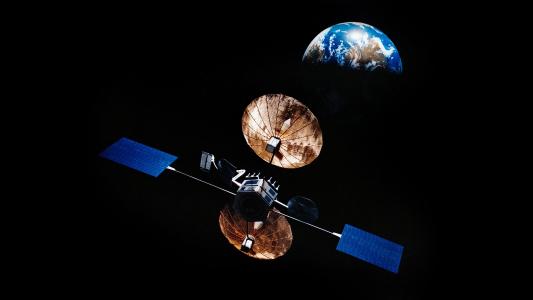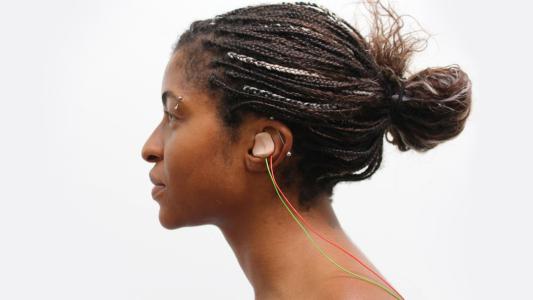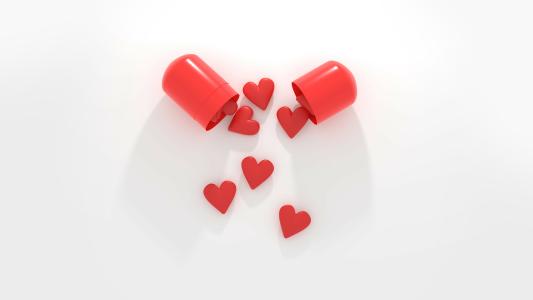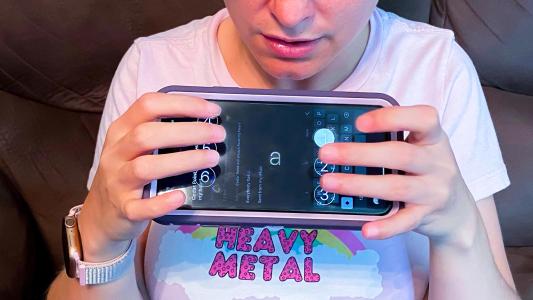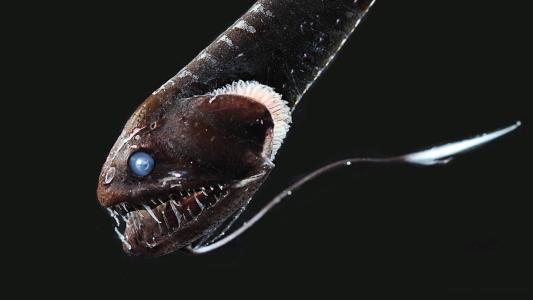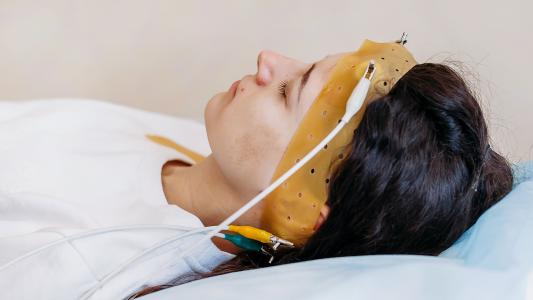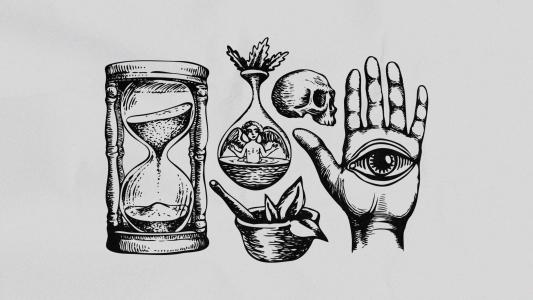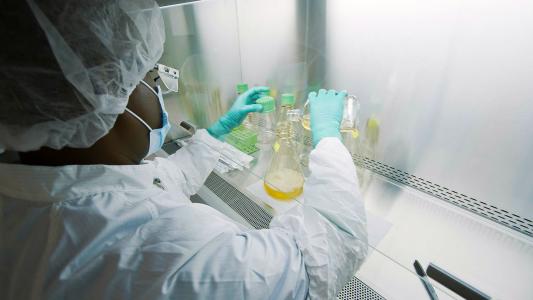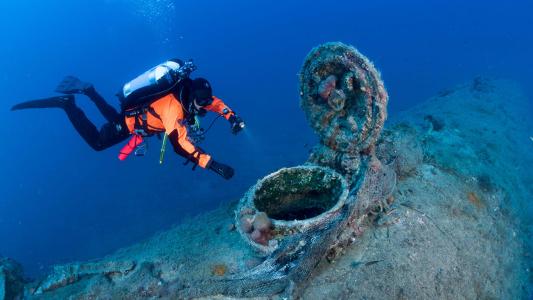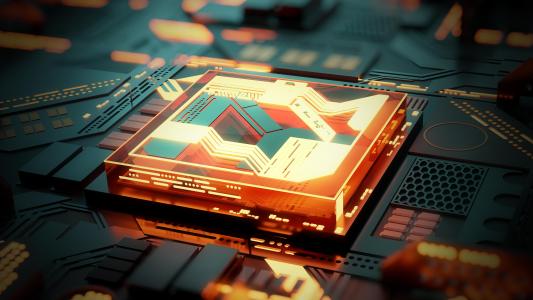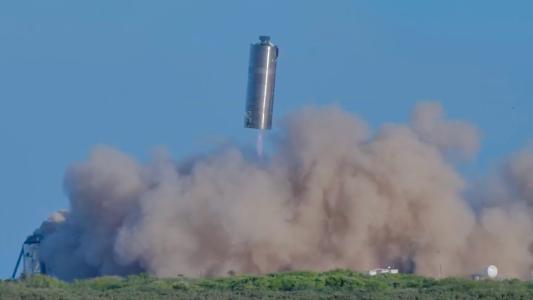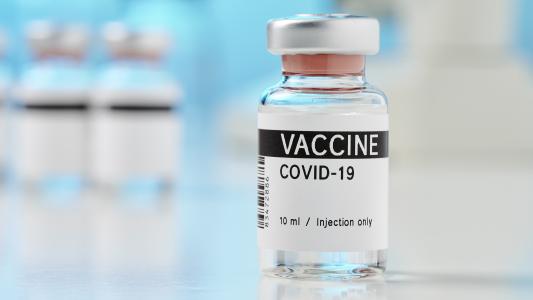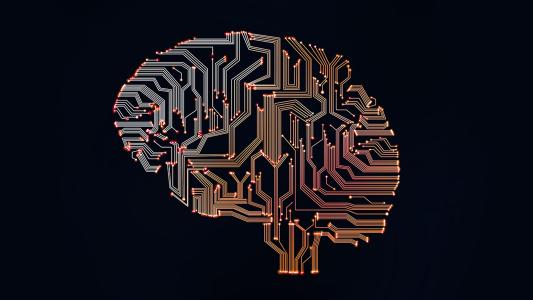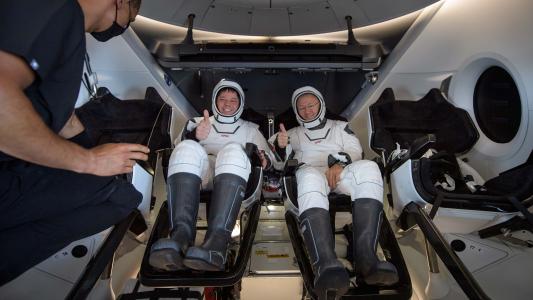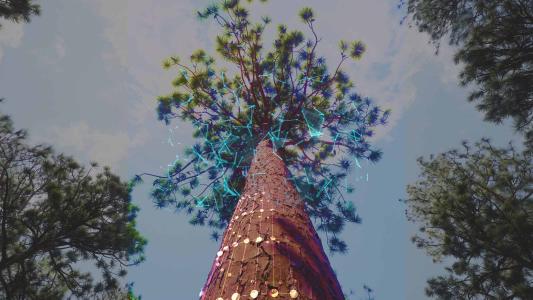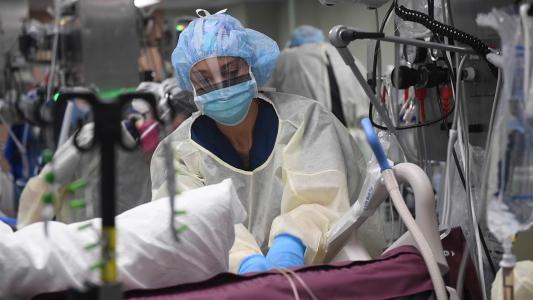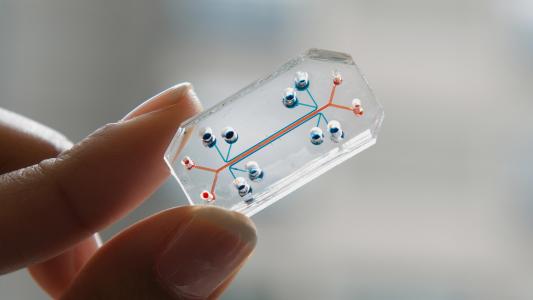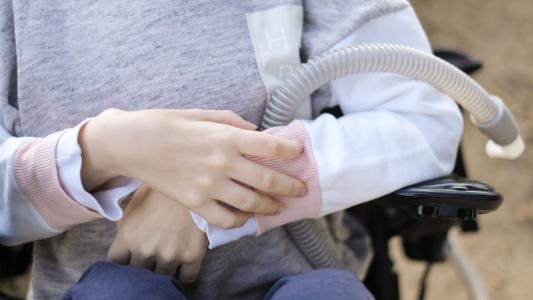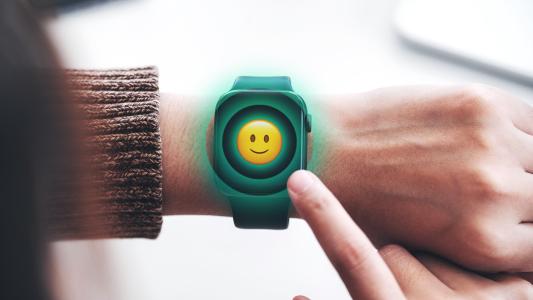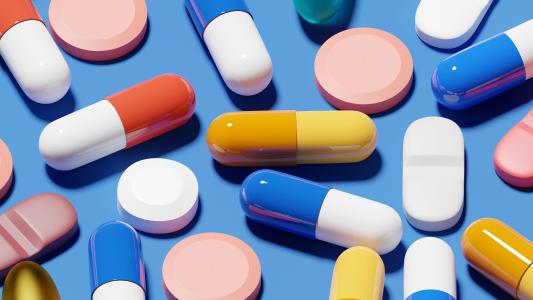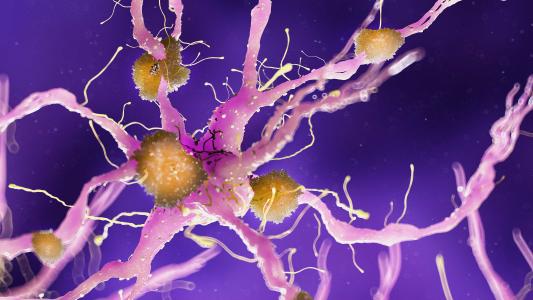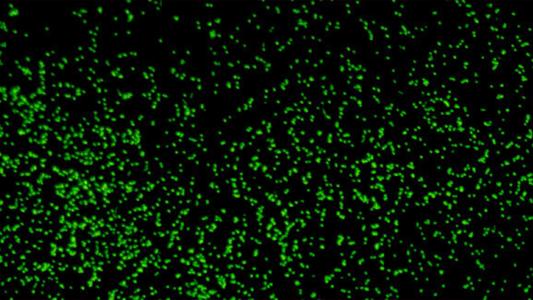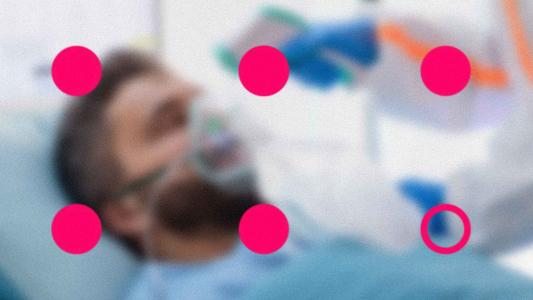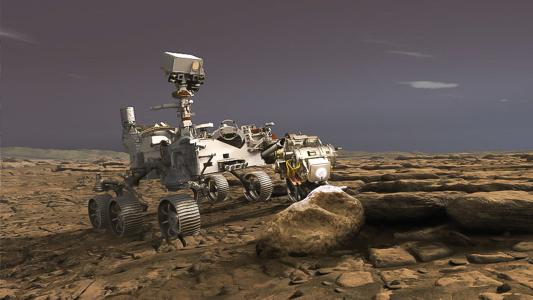This massive farm robot is helping secure the future of food
A massive farm robot is analyzing crops in Arizona, helping identify ones that could grow in hotter climates to help secure the future of food.
Facebook's new augmented reality glasses will turbocharge hearing
Facebook released details of augmented reality glasses that can tune out the real world and make computer-generated sounds seem real.
Underwater robots may be the future of deep sea mining
Tech requires raw material, and some lays at the bottom of the sea. Could underwater robots be the future of deep sea mining?
The world's first living machines
The world's first living robots may one day clean up our oceans.
New ALS treatment appears to slow disease progression
A new ALS treatment that appears to slow disease progression offers hope to those battling the incurable neurological disorder.
You can now order a 3D printed, mind-controlled prosthetic arm
By scanning amputees’ limbs with a 3D scanner, Unlimited Tomorrow is making custom prosthetic arms that can be controlled with the mind.
AI that predicts pregnancy complication could save lives
By predicting future preeclampsia risk, the AI might save the lives of mothers and their babies.
Weird, synthetic intestinal lining could make treating diseases easier
A synthetic intestinal lining could make it easier for doctors to control drug delivery and nutrient absorption in patients.
New route makes a journey to the moon faster, cheaper
To make a journey to the moon faster, the NASA scientists behind an upcoming moon mission designed a brand new route for their spacecraft to take.
FDA approves first artificial pancreas for young children
The FDA has approved a new artificial pancreas for children, making diabetes management easier for caretakers of diabetics as young as two.
What we know about COVID-19 reinfection so far
Researchers have reported four cases of COVID-19 reinfection, with patients recovering from the coronavirus and later testing positive for another strain.
“Extinct” New Guinea singing dog is found again, thanks to genetics
The New Guinea singing dog was considered extinct in the wild. But, new genetic evidence suggests otherwise.
Mini nuclear reactors take big step forward in the US
NuScale Power’s small modular reactors generate less energy than full-sized nuclear reactors, but they might also be cheaper and safer.
Could a Norwegian “hurricane net” stop storms by cooling the sea?
Norwegian company OceanTherm uses bubble nets to keep ice out of fjords. Could a hurricane net weaken the storms?
Amazon drone delivery gets approval to launch from FAA
Prime Air, Amazon’s drone delivery service, has secured a key FAA certification, clearing it for the next phase of testing in the U.S.
Microdosing LSD may provide pain relief
Since the 1960s, LSD has been seen as a potential painkiller. Now, new research suggests microdosing LSD may indeed provide relief.
These microbots may one day crawl through the body
Researchers have designed semiconductor legs for microbots. Laser activated, they are the first capable of being controlled by standard electronic signals.
Robots are running COVID-19 drug development
IBM’s new online platform, RoboRXN, combines artificial intelligence, cloud computing, and robotics to automate the COVID-19 drug development process.
It's now easier to see individual atoms, thanks to new tech
With improved tech, two teams have sharpened cryo-electron microscopy to be able to see individual atoms.
Pocket-sized bot can perform surgery better than humans
A tiny origami-inspired robot assists surgeons in a mock surgery.
A patient’s sex may affect their COVID-19 immune response
Key differences in the COVID-19 immune response of men and women could potentially explain a disparity in patient outcomes.
Influenza virus may be transmitted by particles in the air
Airborne particles like dust and dander not caused by breathing — “aerosolized fomites” — may be a route of influenza virus transmission.
A professor's teaching hack lights up twitter
Educators new to online teaching are struggling to adapt. This teacher created a DIY lightboard that is being widely shared on Twitter.
3D printed homes could soon be made out of dirt
By transforming soil into a construction material for 3D printed homes and other structures, researchers hope to slash concrete's environmental impact.
Google announces cheaper alternatives to college degrees
Google’s new certificate program provides alternatives to college degrees that are cheaper to obtain, but potentially worth the same in the job market.
Did life on Earth travel here from Mars?
Bacteria that survived on the outside of the ISS for three years suggests that panspermia is still a viable theory for the origin of life on Earth.
The social distancing traffic light
Assessing your COVID-19 risk for everyday activities will be key to some kind of normalcy. Now, researchers want to add nuance to social distancing.
Elon Musk: Neuralink brain implant detects pigs' movements
During a livestream, CEO Elon Musk presented the latest Neuralink brain implant, as well as what he claimed were several pig recipients of the device.
Mojo Vision wants to give our eyes superpowers
AR contact lenses will project the digital world into our retinas.
Teens create website to combat social isolation in seniors
To help combat the problem of social isolation, three Texas teens created Big & Mini, a website that sets up video chats between seniors and younger people.
$5 COVID-19 test could be a game changer in the US
Abbott Laboratories’ $5 COVID-19 test has secured an FDA authorization, meaning the U.S. now has access to a fast, accurate antigen test.
Storm chasers explore Hurricane Laura with new flight simulator
Virtual storm chasers are using Microsoft’s new flight simulator to explore Hurricane Laura as it moves across the U.S.
Redesigned syringe could increase global access to medicine
A double-barrel syringe developed at MIT makes it possible to inject highly viscous biologics, making them more accessible to patients.
A health app could someday detect heart disease via selfies
Researchers in Beijing created a new deep learning algorithm, which claims to detect signs of heart disease in the human face.
“Antivitamins” could be the cure for antibiotic resistance
The B1 antivitamin helps bacteria kill competing bacteria, leading researchers to suspect it could help us fight antibiotic resistance and superbugs.
Why COVID-19 patients lose their sense of smell
Researchers have identified cells that are most susceptible to the novel coronavirus. They also support neurons associated with the sense of smell.
The murder hornet’s genome may help stop the invasion
The Asian giant hornet has invaded the Pacific Northwest. Researchers hope a map of the murder hornet’s genome can help their hunt for them.
Meet snatcher, the chameleon lizard robot with an ultra-fast tongue
The chameleon lizard has a highly specialized tongue. Now, a team of engineers created a quick-tongued robot.
Training a home robot to see — and hear
Facebook's AI lab has released new tools for its embodied AI training platform, including one to train a home robot to respond to sounds.
Raising Pacific islands to save them from high sea levels
The president of Kiribati announced a new plan to fight against sea level rise: raise the islands.
How to radically biohack your mind
Brain-computer interfaces could enable humans to "merge with AI."
Smart farm equipment can spot weeds among crops
Facebook’s facial recognition AI will turn ordinary farm equipment into precision agriculture machines by training it to spot the weeds among the crops.
Left-handed people are “left-out” of brain research
Left-handed people are systematically excluded from brain research, due to an archaic doctrine. These neuroscientists want that to change.
Scientists want to study your at-home psychedelic mushroom experiences
Scientists are looking for people planning to trip on psychedelic mushrooms for a new study focused on people’s “real-world” experiences with psilocybin.
Fecal transplant cures man whose gut made him drunk
A fecal transplant cured a man of auto-brewery syndrome, a rare condition in which the gut converts carbs into alcohol, making a person feel drunk.
Can the common cold help battle COVID-19?
The common cold can be caused by a coronavirus. New research suggests the immune response it causes may help protect against COVID-19.
Scientists grow mini human hearts from stem cells
Mini human hearts grown from stem cells, also known as "heart organoids," could help doctors address the most common kind of birth defect in humans.
Study may explain why cancer gets more aggressive as we age
A molecule in the blood of older people promotes the spread of cancer, which could explain the link between age and metastatic cancer.
Using smartphone cameras to detect diabetes
A new algorithm can detect diabetes using data collected by a smartphone’s camera, offering a way to address the problem of undiagnosed diabetes.
Smart traffic lights ease congestion on city streets
Smart traffic lights by startup NoTraffic use AI to improve the flow of traffic in cities, minimizing carbon emissions and delays for first responders.
Who should get the COVID-19 vaccine first?
The COVID-19 vaccine will likely be rationed. Who will be first on the list to receive it?
The material that could help humans become cyborgs
Coating implantable electronics in the polymer PEDOT can extend their life, which could make cyborgs more common in the future.
Open-source COVID-19 saliva test could be a game changer
SalivaDirect, a COVID-19 saliva test funded by the NBA and NBA players’ union, could be the cheap, accurate testing method the U.S. desperately needs.
This smart pill could unlock mysteries of the human gut
A new smart pill can be programmed to collect gut microbiome samples from anywhere along the GI tract — overcoming a major research problem.
AI force plate prevents injuries by predicting them
Sparta Science has developed an AI-powered force plate system that prevents injuries among athletes and soldiers by predicting their likelihood.
Doctors spray chemo inside abdominal cancer patients
For the first time, a U.S. trial will test the ability of an experimental cancer treatment called PIPAC to help late-stage abdominal cancer patients.
Hackers build a DIY satellite tracker to eavesdrop on space
The NyanSat guided challenge asks hackers to build a satellite tracker, making low-earth-orbit satellites more accessible.
Scientists have found the locust swarm pheromone
A locust swarm is flying famine, devouring millions of pounds of crops. Researchers have found the swarming trigger — and perhaps an answer to stopping it.
Immune proteins show promise as COVID-19 treatment
Immune proteins called interferons appear useful as a COVID-19 treatment if given to patients before an infection becomes severe.
Good news, bad news, and reasons to be optimistic about COVID-19
Much has evolved since the earliest predictions about COVID-19. Here's how the data is updating our view on the coronavirus.
Gates Foundation backs a $3 coronavirus vaccine
The Gates Foundation is spending $150 million to help with the manufacturing and distribution of a $3 coronavirus vaccine in lower-income nations.
Urine test could replace malignant melanoma biopsies
Doctors can look to the levels of certain fluorescent molecules in the urine of malignant melanoma patients to track the progression of their skin cancer.
How to mass produce your own organs
Bioprinting could be the next frontier of personalized medicine.
Is it possible to predict the next black swan event?
Extremely rare but massively disruptive, no one sees a black swan event coming. But researchers are building a method that may change that.
Gene-edited squid: a breakthrough in brain health research
Researchers use CRISPR to create a gene-edited squid. This work could help advance research on neurodegenerative diseases like Huntington's or Alzheimer's.
Google wants to make the world’s largest earthquake detector
Google wants to create the world’s largest earthquake detector by using the accelerometers of Android phones and city-level location data.
App brings psychedelic-assisted therapy into your home
The Field Trip app aims to help people get some of the benefits of psychedelic-assisted therapy outside the confines of a clinic.
The dwarf planet Ceres may hide a subterranean sea
The largest body in the asteroid belt, the dwarf planet Ceres may hide a salty subterranean sea.
Is it safe to fly right now? MIT expert weighs in.
Is it safe to fly right now? An MIT professor calculated the risk of air travel during the pandemic in two different flight scenarios.
One ayahuasca experience could have lasting effects on the brain
Researchers believe just one ayahuasca experience may be enough to have a lasting effect on the brain.
Scientists find a new way to detect space junk orbiting Earth
A new technique for tracking space junk with lasers works during daylight hours — making previously “invisible” space debris visible.
DEF CON hackers compete to hijack a satellite in orbit
DEF CON’s Space Security Challenge 2020 tasked teams with hacking satellites. The grand prize? Nothing less than the moon.
Nerve-stimulating earbud could accelerate language learning
A non-invasive vagus nerve stimulation device can make language learning easier — and it might help with other types of learning, too.
An invite to hack voting machines
Voting machines may have security vulnerabilities, so the largest supplier is inviting pro hackers to find them.
Researchers create blueprint for the “love hormone” receptor
The shape of the love hormone receptor is finally revealed in a 3D map created by researchers at the University of Zurich.
Blind YouTuber shows tech industry how to be more inclusive
Visually impaired YouTuber Kristy Viers has created a channel where she demonstrates the assistive technology features on her devices.
These ultra-black deep-sea fish absorb over 99% of light
Researchers have discovered ultra-black deep-sea fish that can absorb over 99% of light. Their skin may hold secrets to creating new ultra-dark materials.
Hack your dreams to improve your waking life
These scientists want to hack your dreams to improve your creativity and memory.
Medieval medicine yields modern weapons
Deadly antibiotic-resistant superbugs require new weapons. Ancient and medieval medicine may point us to where to find them.
Designer antibodies could help treat and prevent COVID-19
A pair of new trials will test the ability of designer antibodies to not only treat COVID-19, but also potentially prevent coronavirus infections.
Divers remove wildlife-killing “ghost nets” from shipwreck
The Healthy Seas initiative removes wildlife-killing “ghost nets” from the ocean so that they can be recycled into useful Econyl yarn.
A sunblock to save Martian explorers from radiation in space
Radiation in space is a major threat to astronauts’ health, but a new biomaterial could make space exploration a little less dangerous by blocking x-rays.
Afghan farmers use solar panels to grow food — and opium
Farmers in Afghanistan are taking advantage of cheap solar panels to power the water pumps they use to irrigate crops for food and opium production.
Is quantum hacking the biggest threat to encryption?
While some security experts prepare for quantum hacking, others argue that the EARN IT Act is the threat to encryption we need to address right now.
See prototype of Mars-bound Starship take its first “hop”
The first Starship test flight was a success, with the massive SpaceX rocket lifting off from a base in Texas and landing less than a minute later.
Updated coronavirus vaccine list: Where we stand today
A regularly updated coronavirus vaccine list highlighting the candidates closest to receiving approval from regulators.
Japan automates construction with the first bot-built dam
A Japanese construction company has robots taking over jobs that are understaffed, due to a labor shortage.
A humanlike brain means this smart robot can see, feel, and think
A smart robot that uses neuromorphic computing, may one day “think” like humans.
Tracking the Crew Dragon: Return to Earth
A SpaceX Crew Dragon spacecraft with two astronauts onboard has returned to Earth from the International Space Station, marking a milestone in spaceflight.
Building trees in the Metaverse might actually save the forest
NatureXR, a new collective, is the first to build 3D model trees, then have scientists certify them as "real” for virtual reality.
Immune signals may predict severe cases of COVID-19
Severe cases of COVID-19 involve a runaway immune response called a cytokine storm. Immune system “signatures” may sharpen doctor’s forecasts.
Human-like "organ chips" could eliminate animal studies
To rapidly test for COVID-19 treatments without animal studies, researchers make a model human body out of “organ chips.”
Gene therapy gives hope for duchenne muscular dystrophy
A boy received the first gene therapy trial for Duchenne muscular dystrophy and is able to walk once again.
Robots can read your p-p-p-poker face
Emotion-detecting technology could be the next frontier of personalization. But what does this mean for privacy?
Coronavirus treatment update: Where we stand today
Our latest coronavirus treatment update highlights the options that appear to work, ones that might, and ones that failed to live up to their promise.
New blood test for Alzheimer’s is as accurate as brain scans
A new blood test for Alzheimer’s is as accurate as the costly, invasive, and time-consuming methods currently used to detect the disease.
Researchers discover living 100-million-year-old microbes
Researchers have found microbes in deep sea sediment millions of years old. Given food, they sprung back to life.
Scientists test DIY coronavirus vaccine on themselves
Scientists have developed a DIY coronavirus vaccine they think could provide protection against COVID-19 — and they’re testing it on themselves.
COVID-19 tests that are fast, cheap, and less accurate may be key
Fast, cheap, DIY COVID-19 tests could dramatically increase the amount of testing done. And some experts think the trade off in accuracy would be worth it.
How to watch the Mars 2020 rover launch
NASA plans to launch its Mars 2020 rover on July 30. Here’s what you need to know about the agency’s latest Mars mission.
